Police dogs: The fearsome law enforcers who still fit into family life
Dogs have been used for law enforcement since the Middle Ages – and the modern police often owe just as much to their canine constables as they do to the other officers on the beat, as Tessa Waugh found out.
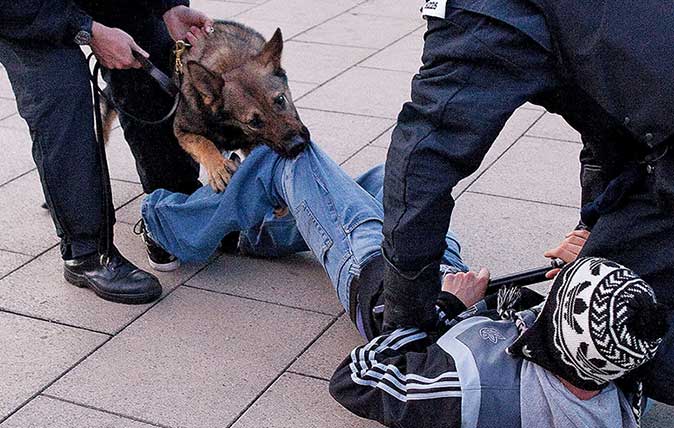

At Etal Lane police station in Newcastle, three dogs are gambolling around their handler PC Steve Henry. Police Dog (PD) Rudi, a Belgian malinois, is a three-year-old general-purpose dog – anything from tracking a suspect or stolen goods to grabbing hold of someone with a weapon; PD Jackson, a seven-year-old red cocker spaniel, is a specialist dog (known outside the police as sniffer dogs), trained to seek out explosives, drugs, firearms and cash; Gerti, a tiny, five-month-old black cocker, is being trained to take over from Jackson when he retires.
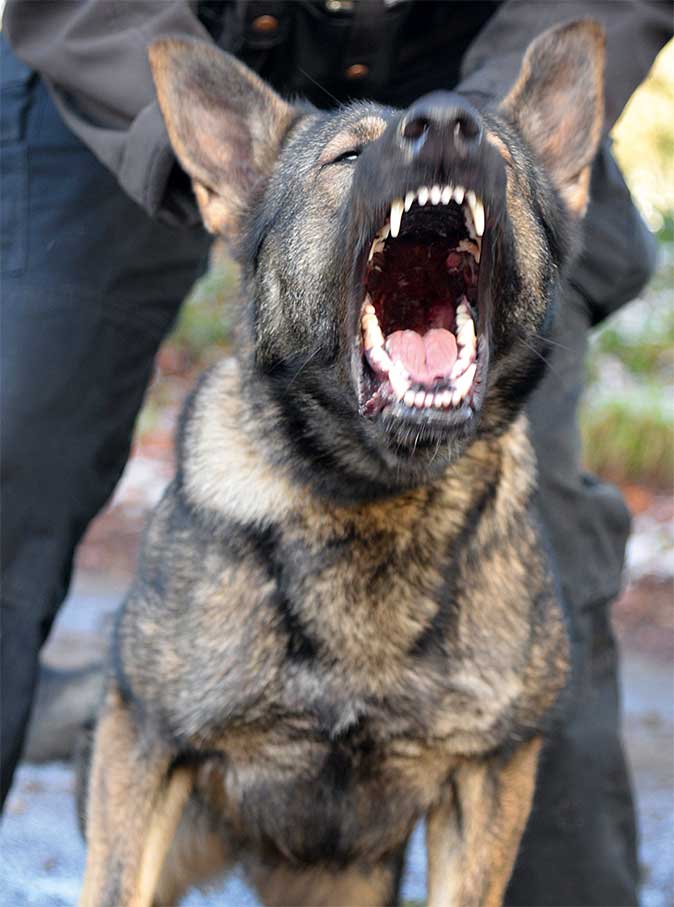
‘You can stroke him,’ reassures PC Henry, gesturing towards Rudi.
I do so, but gingerly, as, although the malinois – which resembles a lighter-framed version of the Alsatian – is prized for its trainability, it can look pretty menacing.
Dog handling is a popular career within the police and, as the number of positions has decreased recently, places are hard won. Each officer is tested for suitability (you need to be fit, co-ordinated and able to use your voice effectively) and only then will they be given a puppy of about 18 months with which to embark on three months of training.
Each puppy is carefully chosen to complement the officer’s size and temperament and, having passed the training, officer and dog are licensed and allowed out onto the streets.
They quickly form a bond, helped by being rarely apart: the dogs travel in the van on every shift and go home with the officer after work.
‘It’s a big commitment,’ admits PC Henry, a handler for Northumbria police for 14 years.
Sign up for the Country Life Newsletter
Exquisite houses, the beauty of Nature, and how to get the most from your life, straight to your inbox.
‘My wife will often say “Crikey, he’s always looking at his watch”, because I always have to get back for the dogs.’
However, police dogs do fit into family life and quickly understand the concept of being on and off duty.
‘On rest days, we all go out for walks, although you have to go where there aren’t too many people around,’ explains PC Henry, who worked at both the Olympic and Commonwealth Games with Jackson.
‘When I’m in uniform, we’re in the van, driving to the station or when the sirens are blaring, they know we’re working.’
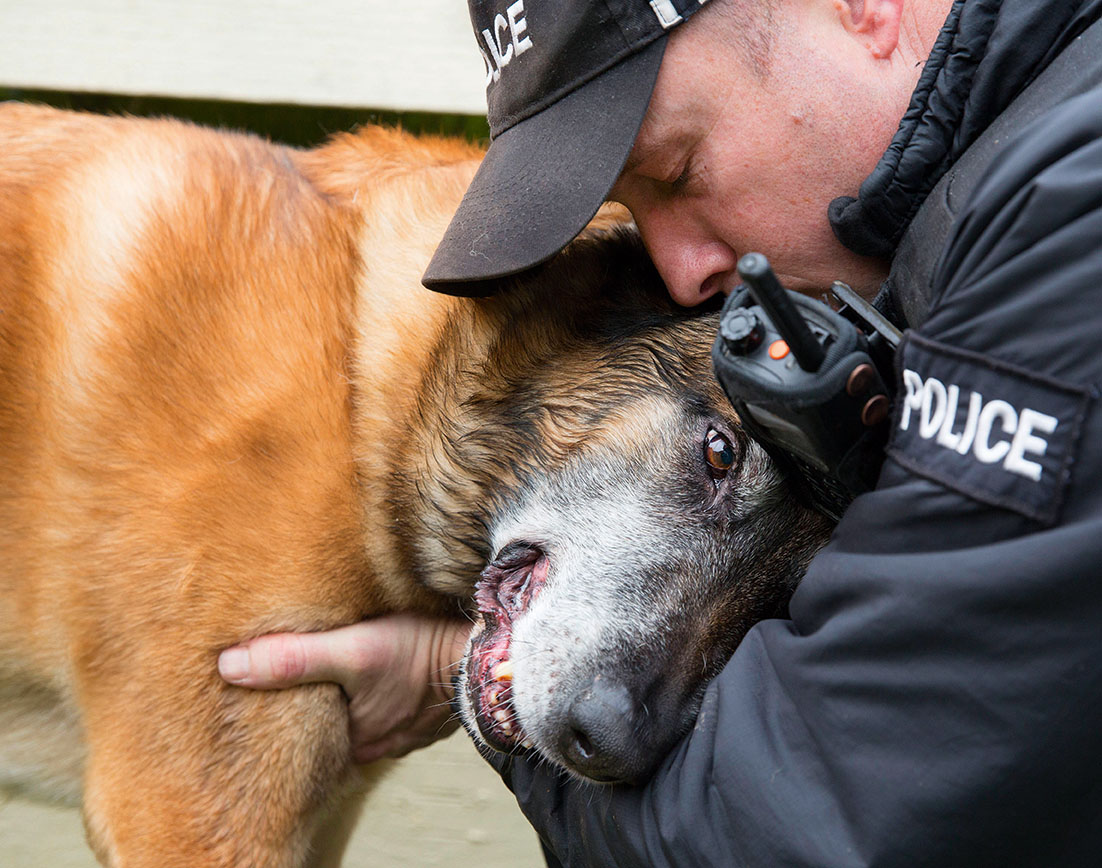
His last general-purpose dog, PD Louis (another Belgian malinois), retired last year after 11 years in the job, during which time, the dog ‘had my back’ many times, not least when they were sent to find a mentally disturbed woman who’d gone missing in the Derwent valley.
‘We were searching near a bridge when he started barking,’ recalls PC Henry.
‘I rushed along the riverbank to find the lady still breathing, half in and half out of the water. She was hypothermic and had terrible injuries from throwing herself from the bridge. I carried her back to the road, with Louis barking the entire time so that back-up would find us.’
Their actions saved the woman’s life, for which they were awarded the Humanitarian Action of the Year Award – a national award for handlers – in 2008.
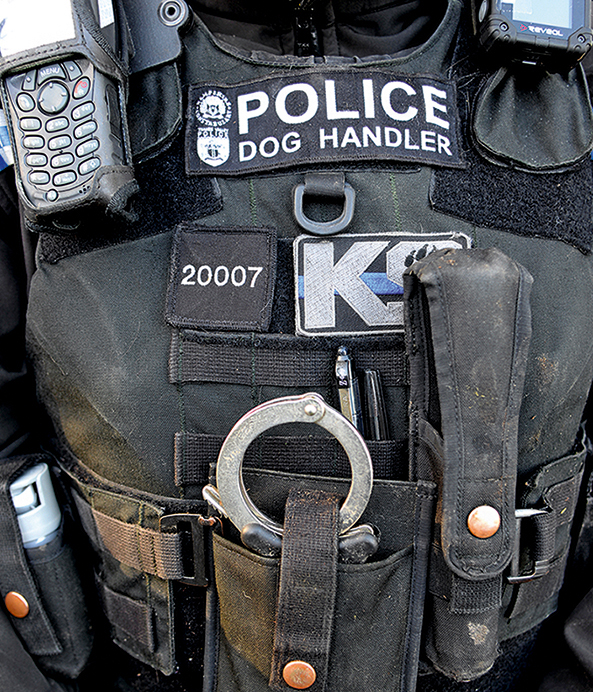
Shifts are divided into three over a 24-hour period – days are usually quieter, providing an opportunity for training, but nights are full-on. ‘People start drinking, taking drugs, stealing,’ elaborates PC Henry. ‘You wouldn’t believe what happens. I was quite naïve when I started and thought everyone would be in bed.’
He’s candid about the impact a dog can have: ‘They [the suspect] might want to fight every cop there, but, when they see a seven-stone Alsatian barking at them, it usually has the desired effect and they put their hands up.’ He recalls a man brandishing knives on the Tyne Bridge. ‘I challenged him first, but it had no effect, so I let Louis go. He knocked him onto his back, the man dropped the knives and we were able to get the handcuffs on.’
PC Stacy Beale of Hampshire and Thames Valley Police, who recently graduated with her latest general-purpose dog, Gem, a police-bred Alsatian, points out the need for care when instructing a dog to grab a suspect’s arm – they don’t do it gently. ‘Every time you use your dog, you have to justify yourself 100%,’ she cautions. ‘If you make the wrong decision, you’re the one who has to defend yourself in court.’
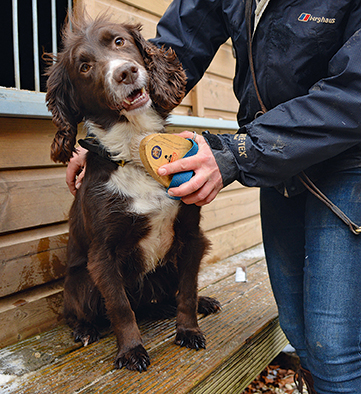
Her first dog, PD Ritzy, an Alsatian, was particularly adept at public order. ‘Once, Aldershot and Woking football supporters had a coming together after a match and we kept them apart for an hour before back-up arrived.’
Now retired, Ritzy lives with PC Beale, plus three Dobermans, PD Gem and a specialist dog called PD Grayson, a liver-and-white sprocker that found £1,000 of crack cocaine in a bush in Basingstoke last year.
Tenacity and determination are qualities that dogs and handlers possess in bucketloads. Essex Police’s PC Sophie Chesters and PD Ivy were commended for pursuing a burglar for three-quarters of a mile, across a river, before arresting the man who’d taken refuge in a tree. ‘Ivy’s nose was the thing that got them,’ discloses PC Chesters, whose other dog, a springer, PD Mo, is a forensic recovery dog, detecting blood, bodies and the scent of death.
Sgt Duncan Sutherland of Scottish Police East Region reports: ‘Everywhere the Royal Family go, I go. I was there before Zara Phillips’s wedding in Edinburgh and when there was a riot in George Street before the G8 summit, the dog section prevented carnage.’
Sgt Sutherland trains gundogs and judges working trials and says there’s little difference in the way gundogs and police dogs are tutored. ‘It’s all reward-based: if they do the right thing, they get a toy.’
At the station next to Fettes College, the officer displays the samples of Semtex, street drugs and cash they use for training. PC Max Hamilton is there with PD Chief, a large Alsatian. ‘He’s not the sort you can pat,’ advises PC Hamilton, describing a recent incident in which Chief apprehended a burglar and his loot.
When you go to bed tonight, be thankful that PD Chief and his colleagues are out there, keeping villains at bay.
Six of the Best: Most sought-after breeds for police dog work
- Alsatian - Sociable and versatile animals that form a strong bond with their owner
- Belgian malinois - Lighter in weight and can work to a greater age than most German shepherds
- Dutch herder - Another foreign import becoming increasingly popular here
- English springer spaniel - Prized for their willingness, intelligence and agility
- Labrador - Above-average trainability and reliability
- Border collie - Energetic, with an ability to work at a distance from their handler
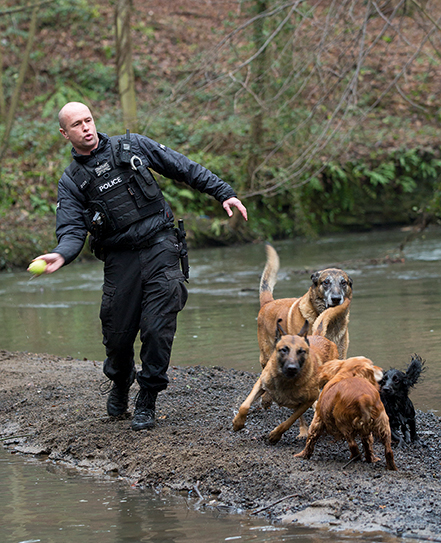
Country Life is unlike any other magazine: the only glossy weekly on the newsstand and the only magazine that has been guest-edited by HRH The King not once, but twice. It is a celebration of modern rural life and all its diverse joys and pleasures — that was first published in Queen Victoria's Diamond Jubilee year. Our eclectic mixture of witty and informative content — from the most up-to-date property news and commentary and a coveted glimpse inside some of the UK's best houses and gardens, to gardening, the arts and interior design, written by experts in their field — still cannot be found in print or online, anywhere else.
-
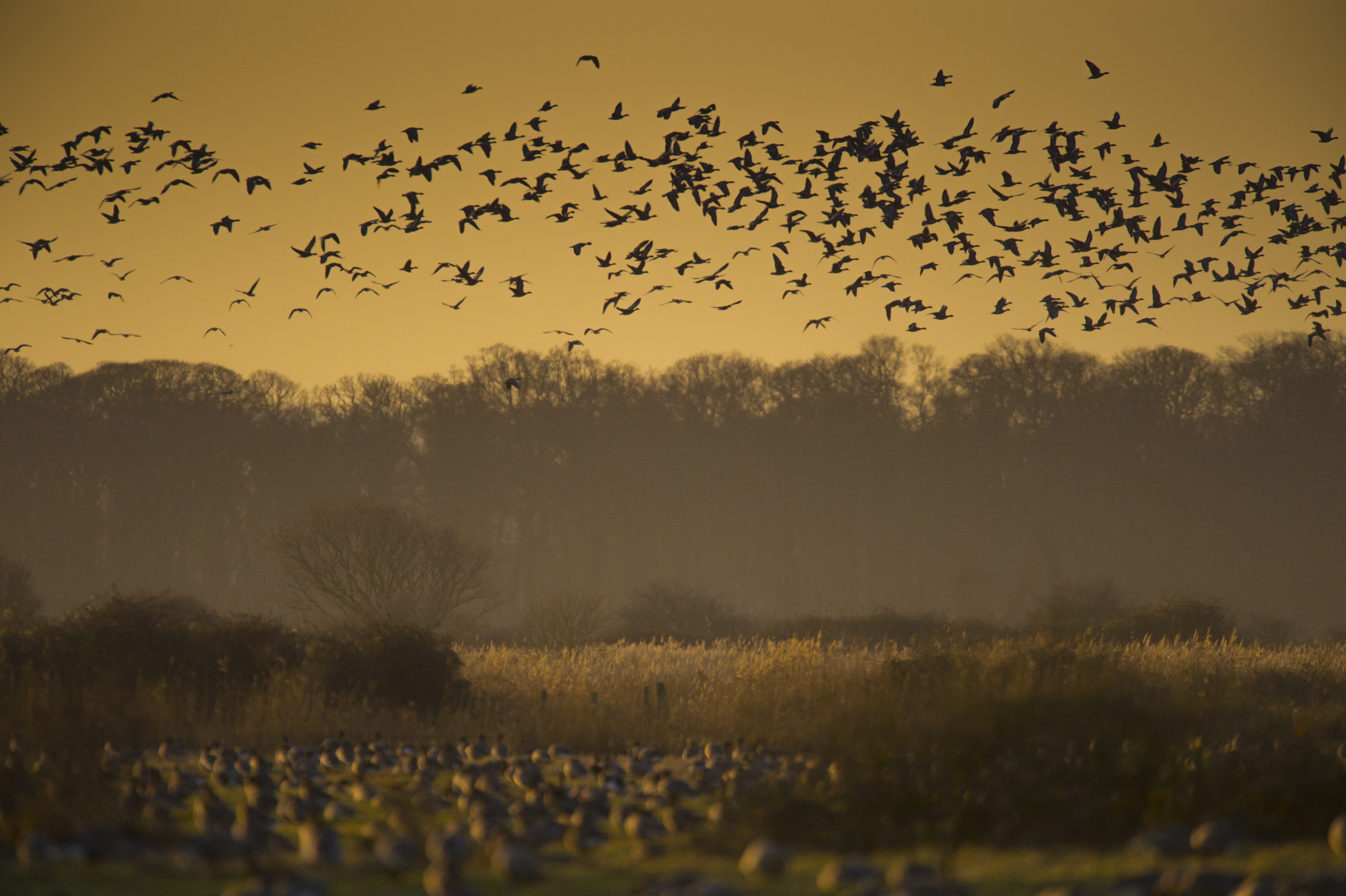 How an app can make you fall in love with nature, with Melissa Harrison
How an app can make you fall in love with nature, with Melissa HarrisonThe novelist, children's author and nature writer Melissa Harrison joins the podcast to talk about her love of the natural world and her new app, Encounter.
By James Fisher
-
 'There is nothing like it on this side of Arcadia': Hampshire's Grange Festival is making radical changes ahead of the 2025 country-house opera season
'There is nothing like it on this side of Arcadia': Hampshire's Grange Festival is making radical changes ahead of the 2025 country-house opera seasonBy Annunciata Elwes